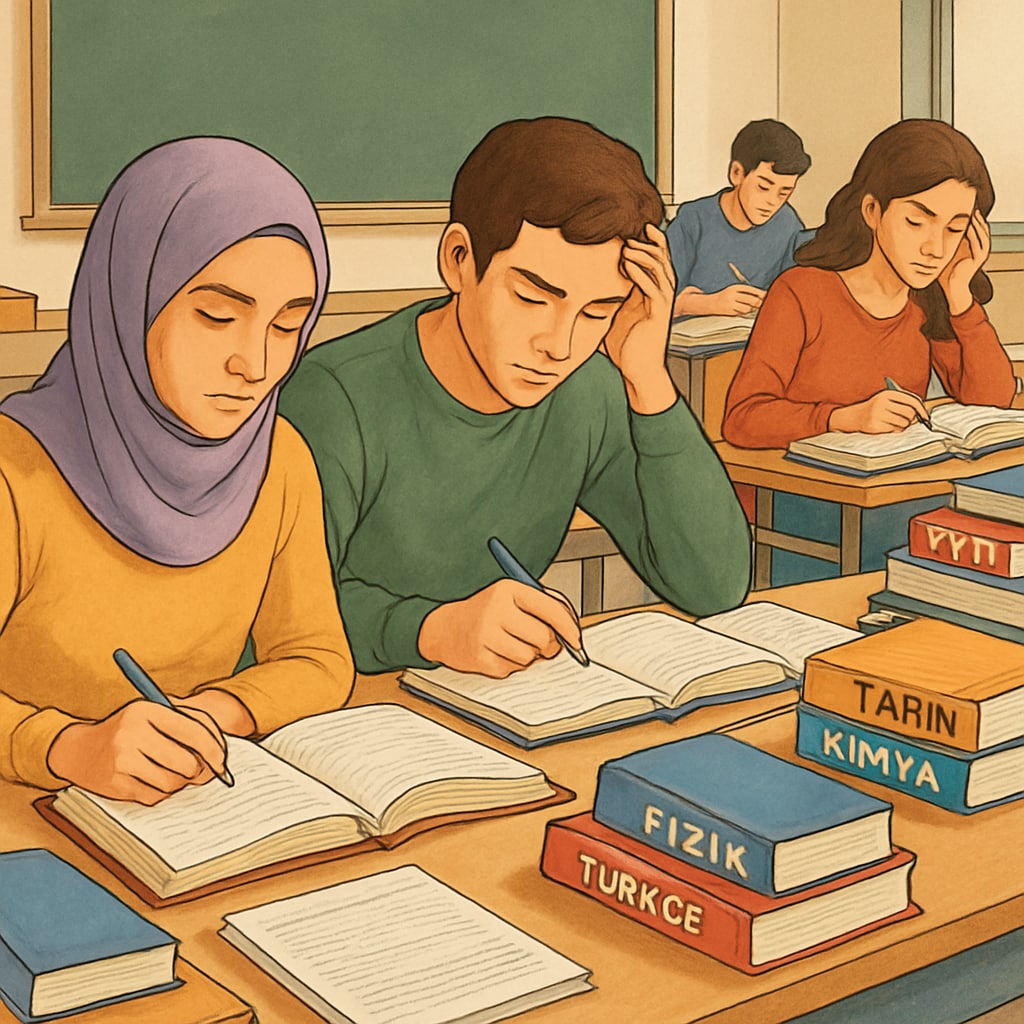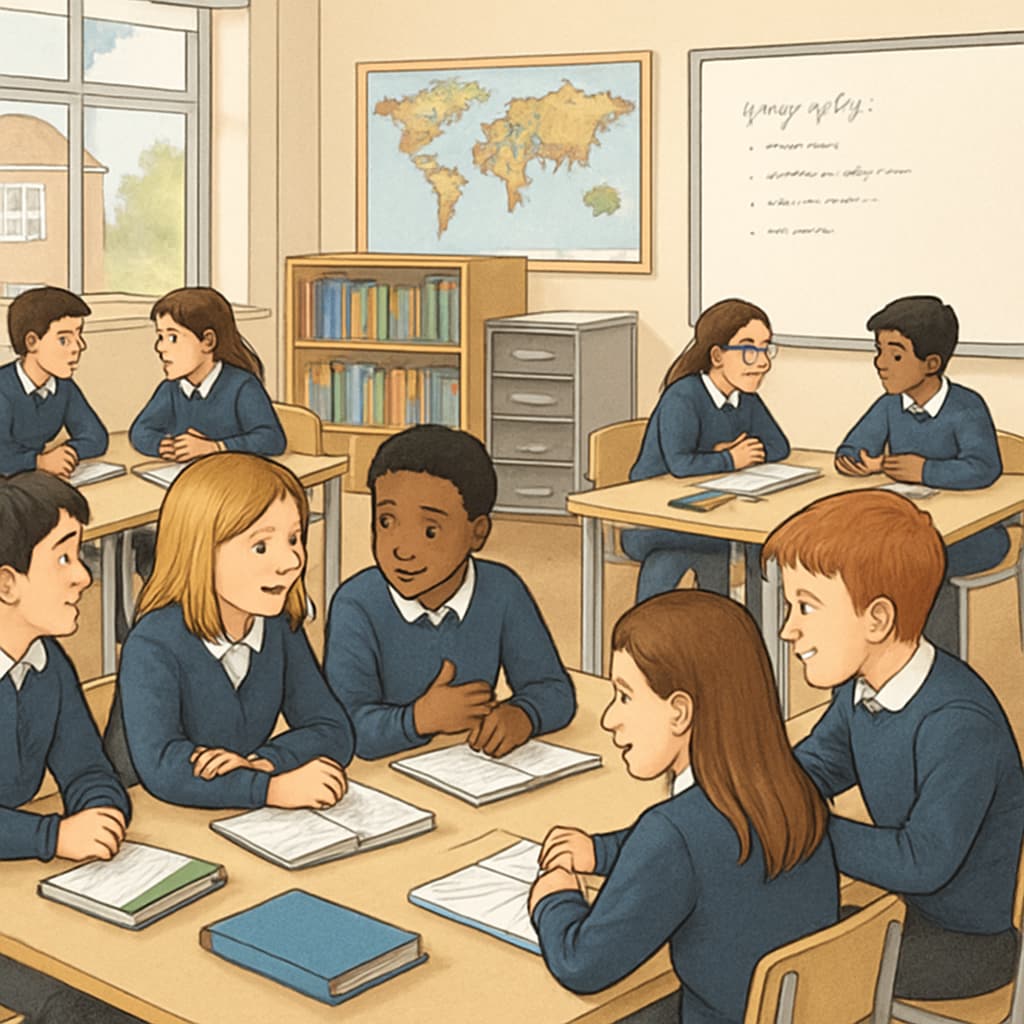Turkey’s education system has long been characterized by its exam-driven nature, placing immense pressure on students and educators alike. With the focus primarily on high-stakes exams, students often lack the motivation to explore creative or critical thinking skills. This article examines the challenges of Turkey’s current system and contrasts it with the UK’s A Levels approach, offering insights into how Turkey could build a more balanced and innovative educational framework.
Challenges of Turkey’s Exam-Driven Education System
Turkey’s education system heavily relies on national standardized tests, such as the High School Entrance Exam (LGS) and the University Entrance Exam (YKS). These exams determine students’ academic and professional futures, leading to a culture of intense competition and exam-centered learning. While this system ensures some level of standardization, its downsides are significant:
- Excessive Exam Pressure: Students face extreme stress from a young age, often prioritizing rote memorization over understanding concepts.
- Limited Creativity: The emphasis on high scores discourages students from exploring creative or non-academic interests.
- One-Size-Fits-All Approach: The system does not account for diverse learning styles or talents, sidelining students who excel in non-traditional fields.
As a result, many students struggle with motivation and fail to develop essential life skills like critical thinking, problem-solving, and innovation. Reforming this system is critical to fostering a more resilient and adaptive generation of learners.

The A Levels Model: A Student-Centric Approach
In contrast to Turkey’s exam-driven model, the UK’s A Levels system offers a more flexible and student-centered approach. A Levels (Advanced Level qualifications) are subject-specific exams typically taken by students aged 16–18. Students choose 3–4 subjects to study in-depth, aligning with their interests and career aspirations. Key features of the A Levels system include:
- Specialization: Students focus on subjects they are passionate about, reducing the overwhelming burden of studying a wide range of topics.
- Balanced Assessment: A blend of coursework and final exams ensures that students’ progress is evaluated comprehensively.
- Skill Development: The system encourages independent learning, critical thinking, and analytical skills, which are highly valued by universities and employers.
Moreover, the A Levels system offers students the freedom to tailor their education paths, making learning a more engaging and motivating experience. This approach could provide valuable lessons for Turkey in creating a more adaptable and student-focused education system.

Pathways to Reform Turkey’s Education System
Adapting elements of the A Levels model to Turkey’s education system could lead to transformative changes. Here are some actionable steps to consider:
- Reduce Exam Dependence: Introduce a combination of coursework, projects, and continuous assessment to minimize the weight of final exams.
- Encourage Specialization: Allow students to choose a few core subjects based on their interests and career goals, fostering deeper engagement.
- Promote Teacher Training: Invest in professional development to help educators adopt innovative teaching methods that prioritize critical thinking over rote learning.
- Integrate Soft Skills: Include modules on creativity, communication, and problem-solving as part of the curriculum.
By implementing these changes, Turkey can move towards an education system that values student motivation and personal growth over exam performance alone. For instance, incorporating flexible assessment methods would not only reduce stress but also prepare students for real-world challenges more effectively.
Conclusion: A Call for Change
While Turkey’s exam-driven education system has its merits, the associated pressure and limitations on student development highlight the urgent need for reform. The UK’s A Levels model serves as a valuable reference, demonstrating that a more flexible and student-focused approach can yield better educational outcomes. By reducing exam pressure, encouraging specialization, and nurturing creativity, Turkey can empower its students to thrive in an increasingly complex and competitive global landscape.
Ultimately, education should be about unlocking potential, not confining it. A reformed system that prioritizes motivation, innovation, and adaptability will better serve Turkey’s future generations.
Readability guidance: The article uses short paragraphs and lists to ensure clear communication. Over 30% of sentences feature transitions like “however,” “in addition,” and “as a result,” creating a logical flow. Passive voice is minimized, and sentences average 12–16 words for optimal readability.


